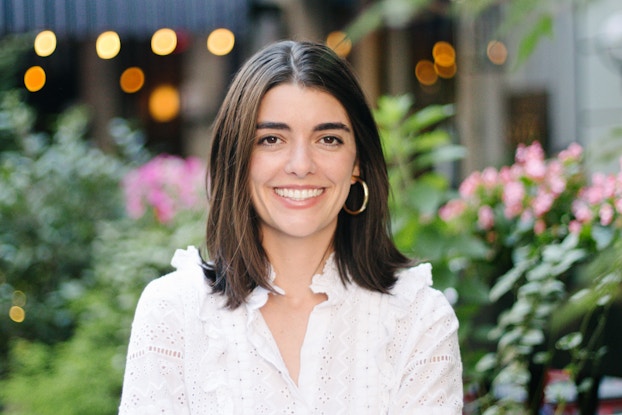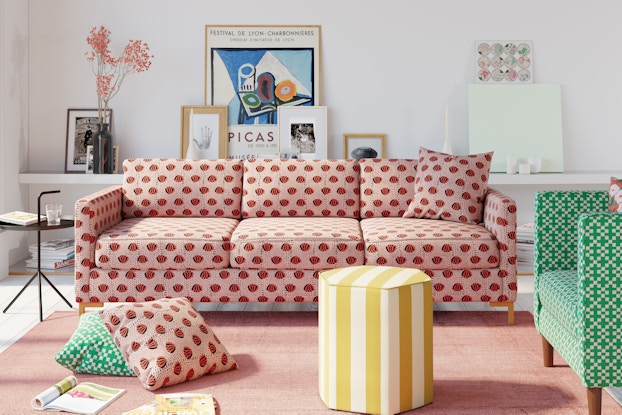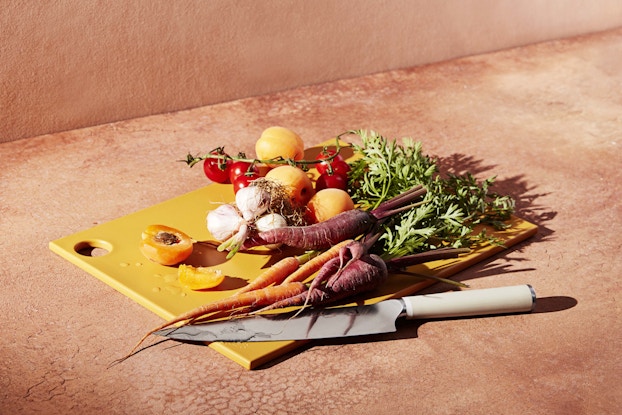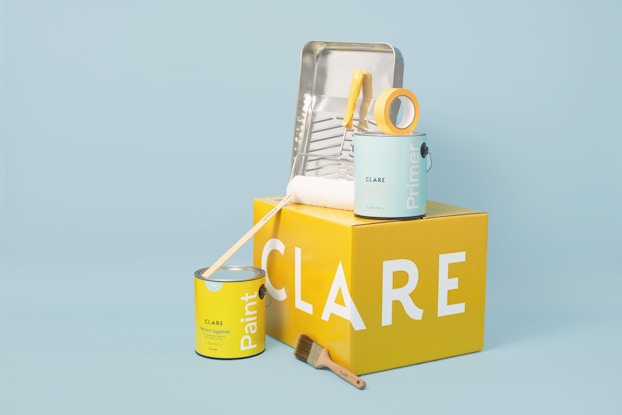
New digital startups need venture capital to grow quickly, but companies building their brands also must have a clear-eyed view of the risks, as well as the rewards, of venture funding.
That’s the advice three founders of New York-based startups shared with CO—.
Britt Bunn, Eunice Byun and Nicole Gibbons are steering startups that are digital disrupters in the home industry.
Bunn is co-founder and chief operating officer of The Inside, which sells customized, made-to-order furniture. Byun is co-founder of Material, which sells curated collections of kitchenware. Gibbons founded Clare, a direct-to-consumer, design-inspired paint company.
All three companies are just over one year old, and were born at a boom time for venture financing.
In 2018 more than 8,380 venture-backed companies received $131 billion in funding, surpassing the $100 billion venture-financing record set in 2000, according to a report by the National Venture Capital Association (NVCA).
This year is also on track to see more than $100 billion invested in U.S. venture-backed startups, Bobby Franklin, President and CEO of NVCA told CO—.
High profile implosions of startups in the home space and other industries, and the collapse of the WeWork IPO in the wake of revelations that it was losing $2 billion a year, have brought new scrutiny to venture-backed models.
In September, Bunn, Byun and Gibbons participated in “The Future of Digitally Native Brands,” a discussion at Business of Home’s Future of Home conference. That session focused on the pressures that accompany venture investment and the new emphasis on profitability.
Balancing growth with profit is “a conversation that’s coming up more and more,” Dennis Scully, moderator of the panel, podcast host and columnist for Business of Home, told CO—.
Bunn, Byun and Gibbons are impressive, Scully said, because “they’re extremely passionate about what they’re doing, but they’re also very realistic about it as well,” he said.
The NVCA’s Franklin told CO— that early venture investment can encourage the kind of risk-taking needed to create innovative companies, while later-stage and public investors place a higher importance on profitability.
“If we want to have a vibrant startup and entrepreneurial community in the U.S., then we still need to encourage experimentation and growth,” he said. “Many times, that will elongate the path to profitability.”
The three founders talked with CO— about their companies and how venture financing fits into their vision for future growth.

$4 million in VC funding — ‘but that doesn’t mean it’s a blank check’
Britt Bunn, co-founder and COO, The Inside
Bunn and Christiane Lemieux created The Inside with the motto: “Real life happens at home.” They saw that millennials were buying homes, and making 40% of furniture purchases, and decided there wasn’t a brand that offered what those customers were looking for.
“They have grown up on Pinterest and Instagram, where there’s so much gorgeous imagery, and it’s not easy to execute on those ideas,” Bunn told CO—.
The Inside makes furniture on demand, with over 100 fabrics and finishes available in the United States, with most pieces shipped within three weeks.
That business model, Bunn said, lets The Inside offer more choice at competitive prices. “It’s effectively a custom experience at a big-box retail kind of price point,” she said.

The on-demand model allows it to be more nimble in responding to trends, Bunn said. It also means it doesn’t generate waste, and is more sustainable, she said.
The Inside has received $4.1 million in venture funding thus far.
The capital it has raised from its venture partners has enabled it to grow faster and attract talent, Bunn said. “That doesn’t mean it’s a blank check,” she told CO—. “There’s a point where you’re trying to find the right balance between growth and sustainability.”
The Inside needs to seize this moment, when millennials are starting to buy and decorate their homes, and therefore venture capital is essential, Bunn said “We want to be the category king; so for us to have that sense of urgency is really important, and to have capital to fuel that is also important,” she said at the Business of Home conference.
The Inside doesn’t reveal sales figures, but its revenue has grown 735% from 2018 to 2019. Site traffic has grown 275% from 2018 to 2019.

$3 million in funding and ‘prioritizing lifetime customer value’
Eunice Byun, co-founder, Material
Material was created to give home cooks well-designed and high-quality kitchen tools such as cookware, knives and cutting boards, at affordable prices.
The goal of Eunice Byun and co-founder Dave Nguyen was “to create something that made people happy in the kitchen and made them feel a sense of pride in their tools,” Byun told CO—.
Material has raised some $3 million in funding to date. It also doesn’t reveal sales figures, but has seen an encouraging response from consumers, with some of its products selling out repeatedly.
Startups, Byun told CO—, need to be focused on growth, and connecting with consumers to survive in a crowded marketplace. But, she said, “I think that you can grow in a sustainable manner, and not necessarily have to pay your way into certain markets or with certain consumers, because if you’re paying your way in, it’s pretty short-lived because that capital dries up.

You need to figure out how you can grow at a fast clip while also having an eye towards profitability,” she said.
Material saw that many of its earliest customers became loyal repeat customers, as it introduced new products. That led the company to prioritize lifetime customer value, and invest in creating new products that would allow it to target those repeat customers, in addition to trying to acquire first-time customers, Byun said.
Apart from the venture capital field, she is seeing lenders and new finance partners emerge that are targeting startups. “What’s exciting is you can find solid financial partners outside of the venture community and you don’t have to give up what is honestly the most prized thing you have, which is equity,” she said.
There’s a point where you’re trying to find the right balance between growth and sustainability.
Britt Bunn, co-founder and COO, The Inside
Funding
These three startups have all received VC funding to propel themselves to the next level. If you think your business might be ready for funding, read more here.
$4.4 million in funding — ‘I’d like to be a 100-year-old company’
Nicole Gibbons, founder, Clare
Nicole Gibbons, an interior designer, was looking for a paint color online when she had what she calls the “lightbulb moment” that inspired her to launch Clare.
“Color and the color palette [make up] the foundation of design, but the way that paint has been merchandised and marketed it’s almost positioned like a commodity,” she said.
“And paint is one of the most cumbersome things to shop for,” Gibbons said. You end up making at least three trips to the store – for swatches, sample jars, then, finally, the paint.
Instead of giving consumers thousands of shades to choose from, the Clare website sells an edited selection of design-inspired colors, with a “Color Genius” quiz to help customers pick the right hue.

Clare also sells brushes, rollers and other painting supplies.
To date Clare has raised about $4.4 million in venture capital, Gibbons said.
She sees the shift away from a “growth at all cost mentality” as a positive change. “That model was never one I felt comfortable with for my business,” she said.
“If you think about the incumbents that dominate the paint market, these are 100-plus year-old companies. So if I’d like for Clare to be a 100-plus year-old company, I want to be more thoughtful about how I build a business,” Gibbons told CO—.
Clare doesn’t disclose sales or other financial details, but Gibbons said she is pleased with the customer response so far. “Pretty much immediately the customers validated that this is a very needed experience and that they love the product,” she said.
CO— aims to bring you inspiration from leading respected experts. However, before making any business decision, you should consult a professional who can advise you based on your individual situation.
CO—is committed to helping you start, run and grow your small business. Learn more about the benefits of small business membership in the U.S. Chamber of Commerce, here.







